

The Best 16 Online Quiz Makers in 2019. Introduction to Create Quizzes in Google Forms. Quizzes are a way to measure understanding of a topic.
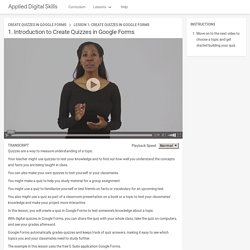
Create & grade quizzes with Google Forms - Docs Editors Help. Create a quiz with Microsoft Forms - OneNote. As an educator, you can use Microsoft Forms to quickly assess student progress and get real-time feedback through the use of quizzes that you design and share with your class.
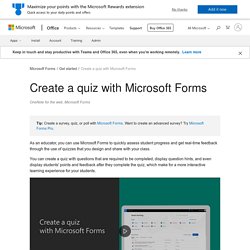
You can create a quiz with questions that are required to be completed, display question hints, and even display students' points and feedback after they complete the quiz, which make for a more interactive learning experience for your students. Microsoft Forms also comes included with rich, real-time analytics that provide summary information for the educator as well as results for individual students. You can export the quiz results to Microsoft Excel for more in-depth analysis. Tip: Are you creating a survey, poll, or other type of form? Start here. In your web browser, go to forms.office.com. Assessment and Testing.
Herbert Puchta - Preparing young learners and teenagers for tomorrow's world. What is Authentic Assessment? What is Authentic Assessment?
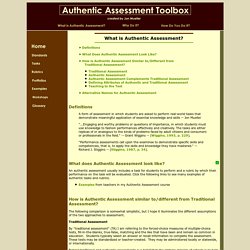
Definitions What Does Authentic Assessment Look Like? How is Authentic Assessment Similar to/Different from Traditional Assessment? Alternative Names for Authentic Assessment. Bloom's Taxonomy. Looking for Strategies and Activities?
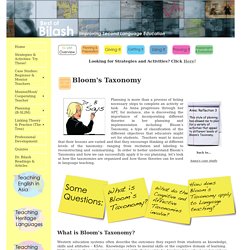
Click Here! What is Bloom’s Taxonomy? Western education systems often describe the outcomes they expect from students as knowledge, skills and attitudes – KSAs. Knowledge refers to mental skills or the cognitive domain of learning. Bloom's Taxonomy in Music Education. Bloom's Taxonomy. Use Bloom's to Think Critically.
Inclusive Learning. Integrated curricula. Videos, Teaching Strategies And Lesson Plans For Teachers: Teaching Channel. Education 320: Teaching PE & Health, Elementary Education. This course was developed to satisfy the California Commission of Teaching credentialing requirements for teacher candidates.
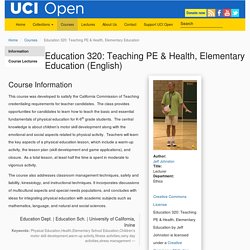
The class provides opportunities for candidates to learn how to teach the basic and essential fundamentals of physical education for K-6th grade students. The central knowledge is about children’s motor skill development along with the emotional and social aspects related to physical activity. Teachers will learn the key aspects of a physical education lesson, which include a warm-up activity, the lesson plan (skill development and game applications), and closure.
Education 173: Cognition & Learning in Educational Settings. Education 151: Language and Literacy. Project-Based Learning Research Review. Editor's Note: This article was originally written by Vanessa Vega, with subsequent updates made by the Edutopia staff. Studies have proven that when implemented well, project-based learning (PBL) can increase retention of content and improve students' attitudes towards learning, among other benefits. Edutopia's PBL research review explores the vast body of research on the topic and helps make sense of the results. In this series of five articles, learn how researchers define project-based learning, review some of the possible learning outcomes, get our recommendations of evidence-based components for successful PBL, learn about best practices across disciplines, find tips for avoiding pitfalls when implementing PBL programs, and dig in to a comprehensive annotated bibliography with links to all the studies and reports cited in these pages.
The Jigsaw Classroom. Elliot Aronson is currently Professor Emeritus at the University of California in Santa Cruz.
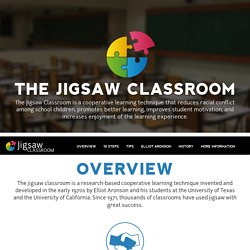
He has long-standing research interests in social influence and attitude change, cognitive dissonance, research methodology, and interpersonal attraction. Professor Aronson's experiments are aimed both at testing theory and at improving the human condition by influencing people to change dysfunctional attitudes and behaviors. Professor Aronson received his B.A. from Brandeis University in 1954, his M.A. from Wesleyan University in 1956, and his Ph.D. in psychology from Stanford University in 1959. He has taught at Harvard University, the University of Minnesota, the University of Texas, and the University of California.
Learning How to Learn: Powerful mental tools to help you master tough subjects. This course gives you easy access to the invaluable learning techniques used by experts in art, music, literature, math, science, sports, and many other disciplines. Joni Holmes - Working memory and classroom learning. Oxford University Press - English Language Teaching Global Blog. Pocket: The Pinterest alternative for saving everything you want, privately. If you’ve become more of a news junkie over the past year like I have, you’ve probably realized that your standard browser bookmark bar isn’t necessarily your best best for saving articles you want to come back to.
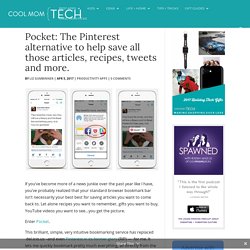
Let alone recipes you want to remember, gifts you want to buy, YouTube videos you want to see…you get the picture. Enter Pocket. This brilliant, simple, very intuitive bookmarking service has replaced del.icio.us –and even Pinterest in its former glory (RIP) — for me. The Pinterest Guide For Teachers. How Does Pinterest Work?
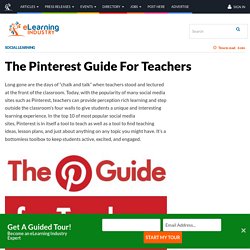
Pinterest allows its members to create a board on virtually any topic and pin images to that board. Other members, called pinners, are able to follow a board and repin any images they find interesting onto their own boards. Here’s the terminology further explained. 6 reasons to use Pearltrees. Pearltrees is the first and largest social curation community on the Internet.
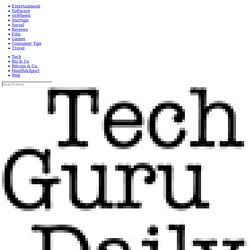
About Open Educational Resources. Our Work. Cheat sheet. A cheat sheet (also cheatsheet) or crib sheet is a concise set of notes used for quick reference.
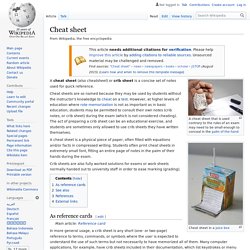
A cheat sheet is a physical piece of paper, often filled with equations and/or facts in compressed writing. Students often print cheat sheets in extremely small font, fitting an entire page of notes in the palm of their hands during the exam. "Cheat sheet" as learning aid - Journal of Chemical Education. 171 497 1 PB. The return of behaviourist epistemology: A review of learning outcomes studies. JavaScript is disabled on your browser. Please enable JavaScript to use all the features on this page. Highlights Behaviourist tradition is evident in the 21st century learning outcomes studies. 40% of the articles referred uncritically to the behaviouristic epistemology.